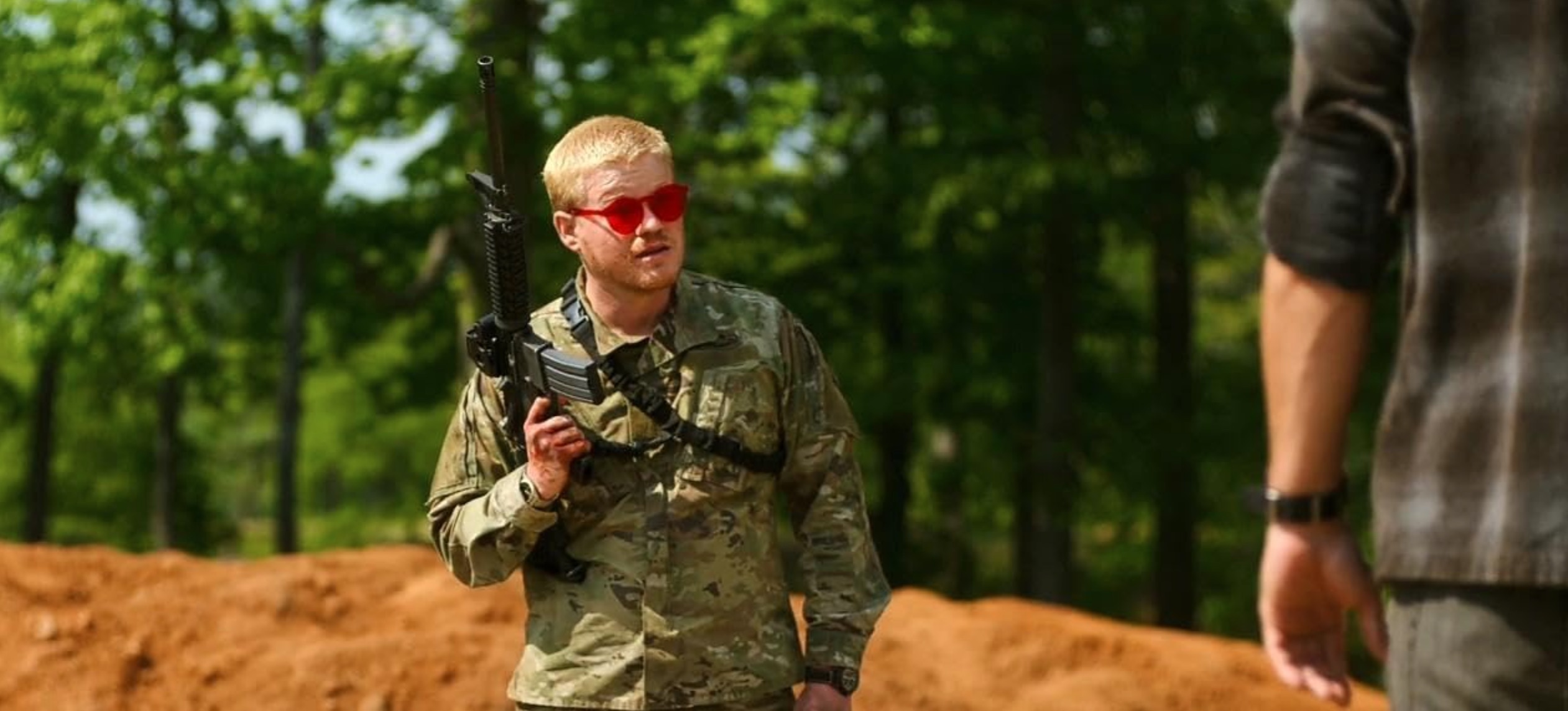It’s a notion which 10 years ago would have been unthinkable: that America might be on the brink of a second civil war. Yet, as the 2024 election approaches, high-profile Republicans are discussing a “national divorce”, leading academics are examining the possibility, and Hollywood is cashing in. The trailer for Alex Garland’s upcoming film Civil War has recently been released and it paints a truly dystopian picture, from the Lincoln Memorial shrouded in black smoke to the federal government conducting air strikes on its own citizens. But is it realistic? Were a second civil war to erupt in 2024, would it really play out in such a blockbuster fashion?
The Civil War trailer implies a conflict between the “Western Forces” of California and Texas, the “Florida Alliance”, and the federal government. This seems implausible on several levels. Would ultra-liberal California really ally itself with the Lone Star State? Texas may be slowly turning purple, but Waco is still a long way from San Francisco, politically as well as geographically. The “Florida Alliance” has slightly more credibility, given its dual status as Donald Trump’s power base and “the state where woke goes to die”. Even so, given that more than a fifth of Floridians are pensioners, the Sunshine State is far from the ideal petri dish for developing an insurrection.
Garland is right to identify California as a potential secessionist, however. Much of the debate around the possibility of a second civil war assumes the impetus would come from the MAGA right. But Professor Adam Smith from the University of Oxford, an expert in the (historical) American Civil War, argues that it’s more likely to be led by the progressive Left.
Consider the following scenario: California, a net contributor to the federal government, decides not to implement a policy imposed by a Republican president — for example, anti-abortion legislation. In response, other Democratic governors follow suit, perhaps in New England or Northwestern states such as Oregon and Washington. Very quickly, a constitutional crisis has emerged. As Smith tells me, “it’s not hard to see a situation where the people talking about federalism and states’ rights are the blue states […] especially with a Republican president like Trump and a conservative-dominated Supreme Court.”
Then there’s the question of how the conflict itself would be fought. The trailer for Civil War shows snipers perched atop Manhattan skyscrapers and tanks rolling through DC. Powerful though the imagery is, this is also extremely unlikely. America has already seen an alarming rise in militia groups, but these rebels would never have the power to resist federal troops. Stephen Marche, author of The Next Civil War, tells me:
Despite its many over-the-top indulgences, Civil War, set to be released in April, asks a crucial question: is America on the brink? A conventional academic definition of civil war entails a thousand deaths per year. This threshold could easily be passed through an escalation of domestic terrorism, which Barbara F. Walter, author of How Civil Wars Start: And How To Stop Them, notes has been on the rise since the Oklahoma City bombing of 1995.
Earlier this year, former Proud Boys leader Enrique Tarrio was jailed for 22 years for treason over his role in the Capitol riot. Mainstream political candidates refute the legitimacy of the electoral process. Supporters of both major parties want to see their opponents prosecuted. This is not normal in a mature democracy. As Marche points out, “America already fits the definition of civil strife. Political violence is already quite normal. The question isn’t if a civil war is going to happen: the question is if it’s already happening.”











Join the discussion
Join like minded readers that support our journalism by becoming a paid subscriber
To join the discussion in the comments, become a paid subscriber.
Join like minded readers that support our journalism, read unlimited articles and enjoy other subscriber-only benefits.
Subscribe